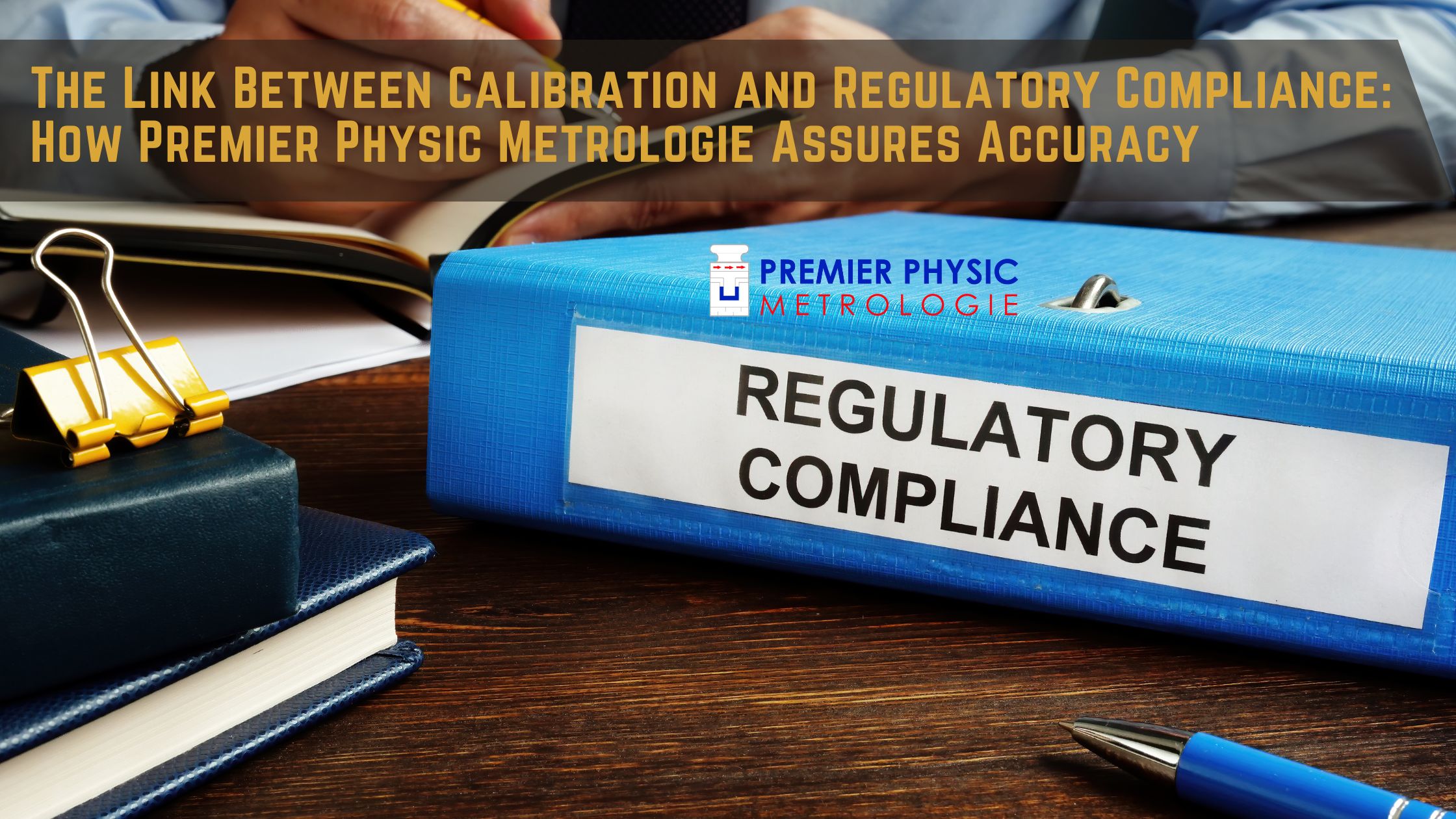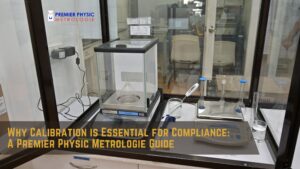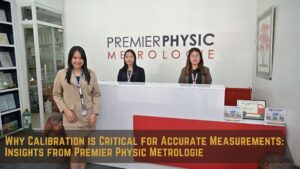Introduction
In today’s rapidly advancing industries, precision and accuracy are more important than ever. Whether in healthcare, pharmaceuticals, electronics, food safety, or manufacturing, precise measurements are essential for ensuring product quality, safety, and regulatory compliance. One of the fundamental processes that ensure this precision is calibration.
Calibration is the process of adjusting and verifying the accuracy of measuring equipment by comparing it to a known standard. The importance of calibration extends beyond simple quality control; it plays a vital role in meeting industry standards and regulatory requirements, particularly in sectors where stringent compliance is mandatory.
Premier Physic Metrologie (PPM), a leader in the field of metrology and calibration in the Philippines, has been at the forefront of helping companies meet both local and international regulatory standards through precise calibration services. With more than 24 years of experience, PPM ensures that the accuracy of your measuring instruments not only guarantees quality but also supports compliance with various regulatory bodies.
In this article, we will explore the crucial link between calibration and regulatory compliance, the industries that rely on accurate measurements, and how Premier Physic Metrologie can help organizations meet these requirements through advanced calibration solutions.
1. Understanding Calibration and Its Importance
a. What is Calibration?
Calibration is the process of ensuring that a measuring instrument provides accurate readings by comparing it to a known standard. This process involves adjusting the instrument to correct any deviations from the true value. The goal of calibration is to maintain the accuracy and reliability of the equipment, ensuring that measurements are consistent and traceable to national or international standards.
Calibration involves:
- Verification of the instrument’s accuracy.
- Adjustment of the equipment to correct any deviations.
- Documentation of the calibration process, including any adjustments made.
b. Why Calibration is Crucial for Compliance
In many industries, regulatory bodies set strict guidelines and standards that must be met to ensure product safety and quality. These regulations often require companies to maintain calibrated instruments that are traceable to national or international standards. Accurate measurements are critical for:
- Product quality assurance: Ensuring that products meet design specifications and safety standards.
- Safety compliance: Particularly in industries like healthcare, pharmaceuticals, and food, where inaccurate measurements can lead to serious health risks.
- Avoiding legal liabilities: Non-compliance with regulations can result in penalties, fines, and reputational damage.
- Maintaining trust: Accurate, calibrated instruments help build trust with customers, stakeholders, and regulatory authorities.
Failing to regularly calibrate equipment can lead to measurement errors, which may cause defective products, production delays, safety hazards, and costly recalls. Regulatory bodies often require proof of regular calibration to ensure that companies are following best practices in quality control and compliance.
2. Regulatory Standards Requiring Calibration
Calibration is essential across various industries, and many international standards organizations require regular calibration of measuring equipment. Let’s take a look at some key regulatory standards and the industries they affect:
a. ISO/IEC 17025
The ISO/IEC 17025 standard is the most recognized international standard for the competence of testing and calibration laboratories. It specifies general requirements for the competence, impartiality, and consistent operation of laboratories. Calibration laboratories accredited to ISO/IEC 17025 must demonstrate that they can consistently produce valid and accurate calibration results.
b. Good Manufacturing Practices (GMP)
In industries like pharmaceuticals and food, GMP guidelines mandate that all measuring equipment used in production processes must be calibrated at regular intervals. Calibration ensures that the production environment meets required specifications and that products are produced consistently and safely.
c. International Organization for Standardization (ISO)
Many ISO standards related to manufacturing, quality management, and environmental management require calibrated measuring equipment. For example, ISO 9001, which is a standard for quality management systems, requires regular calibration of instruments to ensure that products meet customer expectations and regulatory requirements.
d. Food and Drug Administration (FDA) Regulations
The FDA sets strict guidelines for the calibration of instruments used in food processing, pharmaceuticals, and medical devices. Failure to meet FDA calibration requirements can lead to product recalls, facility shutdowns, and severe legal consequences.
e. Local Philippine Standards
In the Philippines, industries must comply with standards set by organizations like the Food and Drug Administration of the Philippines (FDA Philippines) and the Bureau of Product Standards (BPS). These agencies often require proof of regular calibration to ensure product safety and quality.
3. Industries that Rely on Calibration for Compliance
Many industries depend on precise measurements to meet both safety and quality standards. Here are some of the key industries where calibration is crucial for regulatory compliance:
a. Healthcare and Medical Devices
In healthcare, the accuracy of medical instruments is critical for patient safety. Equipment like blood pressure monitors, thermometers, ventilators, and diagnostic imaging devices must be regularly calibrated to ensure that they provide accurate readings. Medical facilities are often subject to strict compliance requirements from regulatory bodies like the World Health Organization (WHO) and local health authorities.
Premier Physic Metrologie ensures that healthcare providers in the Philippines have access to precise calibration services that meet international standards, safeguarding patient safety and complying with healthcare regulations.
b. Pharmaceuticals
The pharmaceutical industry is heavily regulated, with strict requirements for the manufacturing, testing, and distribution of drugs. The FDA, WHO, and Pharmaceutical Inspection Convention and Pharmaceutical Inspection Co-operation Scheme (PIC/S) require regular calibration of laboratory equipment, including balances, spectrophotometers, and chromatographs, to ensure that drugs are manufactured in compliance with strict quality control standards.
PPM provides accredited calibration services to help pharmaceutical companies maintain compliance with these stringent regulations.
c. Electronics and Manufacturing
In the electronics and manufacturing industries, measurement errors can lead to defective products, safety hazards, and financial losses. Regular calibration of pressure gauges, temperature sensors, and dimensional measurement tools ensures that products are manufactured within required tolerances and meet quality standards.
With PPM’s expertise in metrology, manufacturers can ensure that their instruments provide accurate readings, reducing the risk of defects and maintaining compliance with both local and international standards.
d. Food and Beverage Industry
The food and beverage industry must comply with food safety regulations, including the Hazard Analysis and Critical Control Points (HACCP) system, which requires calibrated instruments for monitoring temperature, humidity, and pH levels during food production and storage. Calibration ensures that food is processed in safe conditions, preventing contamination and ensuring product quality.
PPM helps food producers in the Philippines meet HACCP requirements by offering calibration services that ensure the accuracy of their instruments.
e. Aerospace and Automotive
In highly regulated industries like aerospace and automotive, calibration is essential for ensuring that all parts and components meet exact specifications. Calibration of instruments such as torque wrenches, pressure sensors, and flow meters ensures the safety and reliability of vehicles and aircraft.
PPM’s accredited calibration services support the stringent requirements of the aerospace and automotive industries, helping manufacturers meet compliance standards and deliver high-quality, reliable products.
4. How Premier Physic Metrologie Ensures Compliance
Premier Physic Metrologie stands out as a trusted partner for calibration services in the Philippines. With over 24 years of experience, PPM has built a reputation for delivering precise, reliable calibration that meets the highest international standards.
a. ISO/IEC 17025 Accredited Services
PPM holds the highest number of accredited scopes for ISO/IEC 17025, ensuring that its calibration services are internationally recognized. This accreditation guarantees that PPM’s calibration processes meet the rigorous requirements for competence, accuracy, and impartiality, giving clients peace of mind that their measurements are both reliable and traceable to global standards.
b. Comprehensive Calibration Services
PPM offers a wide range of calibration services to meet the needs of various industries, including:
- Temperature calibration
- Pressure calibration
- Electrical calibration
- Dimensional calibration
- Mass calibration
By providing calibration services for multiple parameters, PPM ensures that companies have access to all the tools they need to meet regulatory compliance requirements.
c. Traceability to National and International Standards
All of PPM’s calibration services are traceable to national and international standards, ensuring that measurements are accurate and recognized by regulatory bodies. This traceability is critical for companies seeking compliance with ISO standards, FDA regulations, and other international guidelines.
d. Commitment to Quality and Integrity
PPM’s commitment to quality is reflected in its adherence to industry best practices and continuous improvement. The company invests in the latest calibration technology and regularly trains its staff to ensure that they remain at the forefront of the industry. This dedication to excellence allows PPM to consistently deliver high-quality calibration services that help clients maintain compliance.
e. Calibration Documentation and Record-Keeping
Regulatory bodies often require proof of regular calibration as part of their compliance audits. PPM provides comprehensive calibration certificates and documentation that demonstrate the accuracy of instruments and their compliance with relevant standards. This documentation helps companies avoid fines, product recalls, and other legal issues related to non-compliance.
5. The Benefits of Partnering with Premier Physic Metrologie
By partnering with Premier Physic Metrologie, companies can ensure that their calibration needs are met efficiently and effectively. The benefits of working with PPM include:
- Accurate measurements: Ensuring that products meet quality standards and regulatory requirements.
- Compliance assurance: Meeting the calibration requirements of ISO, FDA, GMP, and other regulatory bodies.
- Reduced risk of product recalls: By maintaining accurate measurements, companies can avoid costly product defects and recalls.
- Improved customer trust: Demonstrating a commitment to quality and compliance builds trust with customers and stakeholders.
- Access to expert advice: PPM’s experienced technicians can provide guidance on calibration best practices and regulatory requirements.
Conclusion
Calibration is a critical component of regulatory compliance across a wide range of industries. From healthcare to manufacturing, accurate measurements are essential for ensuring product quality, safety, and adherence to industry standards. Premier Physic Metrologie provides comprehensive, ISO/IEC 17025 accredited calibration services that help companies maintain compliance and achieve reliable, accurate results.
By partnering with PPM, businesses can ensure that their instruments are properly calibrated and that they remain in compliance with local and international regulations. With over two decades of experience, Premier Physic Metrologie is the trusted partner for precise calibration services in the Philippines.




